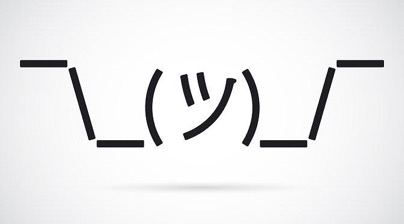Constulting5 - Don'tKnow

"It will either work or not …"
I eventually came to describe myself as an expert at not being an expert. This label resulted from my serial inability to become a genuine expert in something, anything. I'd read and study and practice and seek out acknowledged experts, only to find myself (and the sought-out experts) still somewhat short of full expertise. I could have turned cynical then, but chose to re-frame instead. If I could not master any alternative expertise, I might, perhaps, have a shot at mastering not being a master; after all, few ever achieve full mastery. I should not let my experience discourage me in what I seem to do best, which is falling somewhat short. Becoming an expert at not being an expert reeks of paradox, perhaps the unacknowledged natural state of pretty much everything. ©2019 by David A. Schmaltz - all rights reserved
Who needs a master, anyway? The masters seem to create machines that mere mortals can't maintain. How smart is that? The experts tend to off-gas a narcotic certainty that more often than not leads novices and journeymen astray. I question the necessity of knowing a lot about anything. Since we tend to collaborate when producing anything, does anyone need to know it all? Nobody except know-it-alls ever seem to believe anyone knows it all, and we're well aware of the know-it-alls' reputations. They're apparently all delusional. We cloak our smirks to save them the embarrassment of knowing that we know.
As a Constultant, I've come to believe that my not knowing serves as the foundation of my professional practice, though it's difficult to inscribe onto the old shingle. If I can't affect a totally convincing beginner's mind, I'm rarely in any position to convince anyone that I'm more knowledgable than a novice second class. I'm learning, I might offer in my defense, but I most certainly do not yet know and might never come to know. I'm fairly certain that I won't need to know-it-all to learn enough to help even a deeply enmired client, the deepest enmired of whom seem to always be in some frantic search to rid themselves of some dreaded not knowing. The most heavily trafficked route seems to be the knowledge acquisition route, but nobody I've ever met traveled that road to full satisfaction.
The larger issue with clients I've engaged with always seemed to be that they didn't know that they didn't know. I've long lobbied for a workshop focused upon training people to answer the question, "What do I do when I don't know what to do?" Rather than load up on information intended to repel the presence of not knowing, I think it might be more helpful to become more sensitive to the presence of not knowing. If you don't know that you don't know, it seems human nature to believe that you know. Believing that you know seems to be one of the prominent answers to the What Do I Do? question. Recognizing that I'm immersed in The Great Don't Know seems be the response only rarely registered when I find myself not knowing what to do. Not only do I not know what to do but I'm also blithely unaware of what I'm doing then. I tend to be doing what I usually do when I don't know what to do, a clear tell for almost everyone but me. Don't tell me what to do in response, but gently inform me what in the heck I AM doing then, for I'm lost and haven't got a clue, though I'm spewing off clues almost everyone else can see accumulating around me.
It works this way with clients, too. They do whatever it is they tend to do when they don't know what to do. If only they knew. If only they could see themselves throwing off clues, they might manage to clue themselves in, but they don't because they usually can't. With some practice, the client might become more expert at not being an expert, too, better able to leverage their Great Don't Knows into genuine traction. Even then, it can prove useful to have a Constultant around, someone perhaps more experienced in not knowing, a genuine expert at not being an expert, to point out some obvious-to-everyone-but-you goings on.
I spent the first half of my career gaining knowledge, trying to find a niche where I could demonstrate it. I've spent the second half unraveling that stitching, pulling once longed-for seams. I began letting go after realizing that the expertise I'd earlier pursued might well forever fall beyond my meager reach, thank heavens. I proclaim Thank Heavens! to acknowledge that each engagement needs my learning more than my knowledge, my attention to the way things are rather than my insistence on how they should be, and my generous acceptance of what people do, what I do, when we don't know what to do. Just beyond that resonant dance lie the clues to what might be done instead. Rather than continuing to preconsciously do what you do when you don't know what to do, simply do something, anything, different, just once. It will either work or not, which are way better odds than promised by continuing to do what you've always done, though nobody except perhaps some know-it-all might ever understand why.

